The semester is coming to an end for everyone here at GTL, and it is oh so bittersweet. In the last two weeks of the SLS program, we had three separate speakers come to discuss biodiversity, the reality of immigrants in Europe, and about more efforts for sustainable development in Metz by the European Institute of Ecology. Then, we buckled down for our last big hoorah with JJ, our compost friend, at his home for a yummy traditional French dinner (along with some good cheese and yummy desert).
The first visit that we had was a presentation on biodiversity and its importance, or more like, its disappearance. Raisa Mulatinho Simões, a former student of Georgia Tech and now a doctoral student in political science, spoke with us about her travels across Europe to different conferences dedicated to the conversation of biodiversity and, specifically in agriculture, alterations in fruits and vegetables DNA for increased yield or best taste. She discussed the potential consequences and implications of this type of engineered farming in the context of sustainability and the environment. Biodiversity is something that facilitates evolution and change in the environment; the economic and environmental aspects of this choice are not in balance.
The most exciting part of the visit, for me, was seeing someone from my university who’s pursued an international degree and career in something that she’s passionate about. I felt like what she’s doing now is something that I want for myself in the future, and she’s thriving. French is a learned language for her as much as it is for me. Her understanding of the language and presentation skills were amazing, and that just goes to show that with practice and dedication, you can experience two facets of success in pursuing studies or jobs in different countries while mastering their language.
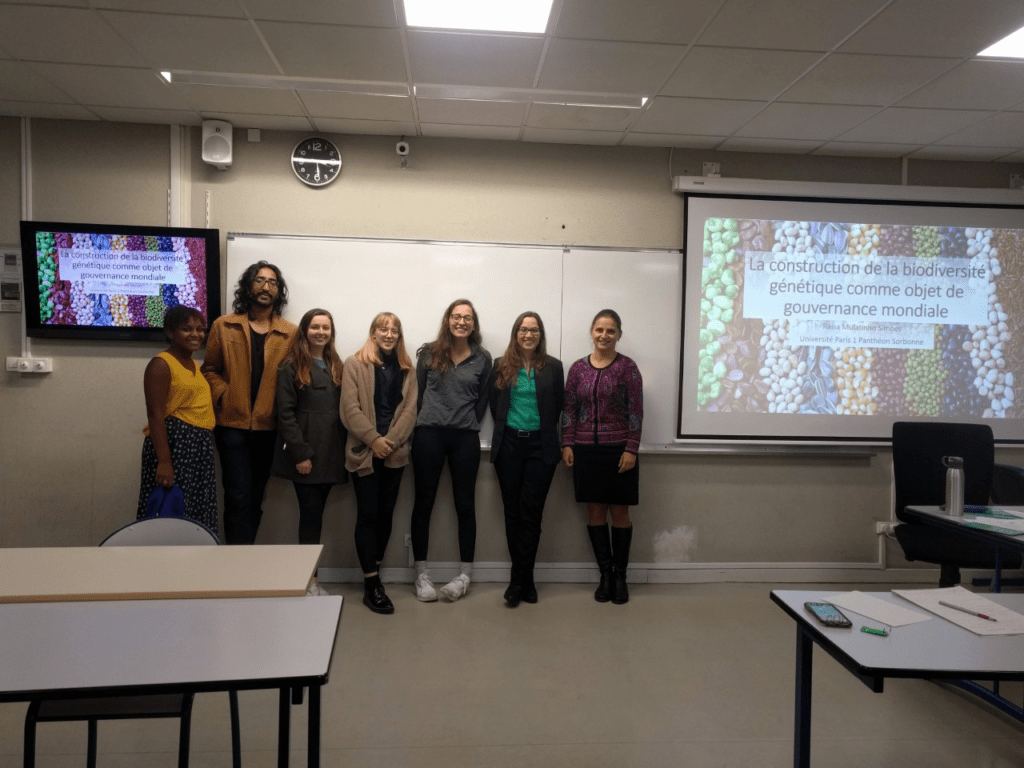
Our second presentation was about the reality of immigrants in Europe: how they’re treated, the misconceptions or prejudices that people have versus the reality of immigrants, and the current European protocol for immigrants, as decided by the European Union. Vicki Birchfield is a professor at Georgia Tech with us here at GTL this semester, teaching international affairs classes. During the presentation, she laid out the creation of the European Union, it’s origin story. She elaborated on the key individuals of its creation and the original countries, those which are considered Schengen era European Union members. From there, she discussed the policies that they’ve made over the years as far as immigration and human rights, tying in elements from the United Nations as well. Once we’d gotten through the introductory material for context, we were able to discuss the nature of immigration in Europe: where a majority of immigrants come into the country, why (in a general sense), and the problems of the past and present. In 2015, there was a huge surge of Syrian refugees coming into Europe due to the political unrest and danger in the country, and the number of refugees coming was estimated to be in the millions. The European Union had to call emergency meetings, get diplomats from outside their own coalition’s borders in order to devise a plan to help these people and care for their needs. They had to solve hot topic issues such as: where will the refugees go, what will the process of obtaining asylum look like for them, and what will they do once they’re in the country? These aren’t easy questions to answer, and in some regards, like guaranteed asylum for minors, they exhibited an ability to effectively problem solve despite that. In other ways, though, such as FRONTEX (a system in which immigrants requesting asylum are obligated to give their fingerprints and all forms of identification for easy monitoring of their actions in Europe) and detention centers installed at the borders of France, for example, people wait there for undefined periods of time, often in cramped and overpopulated spaces, without food or water. These are areas in which the European Union could improve upon their solutions for immigrants in Europe.
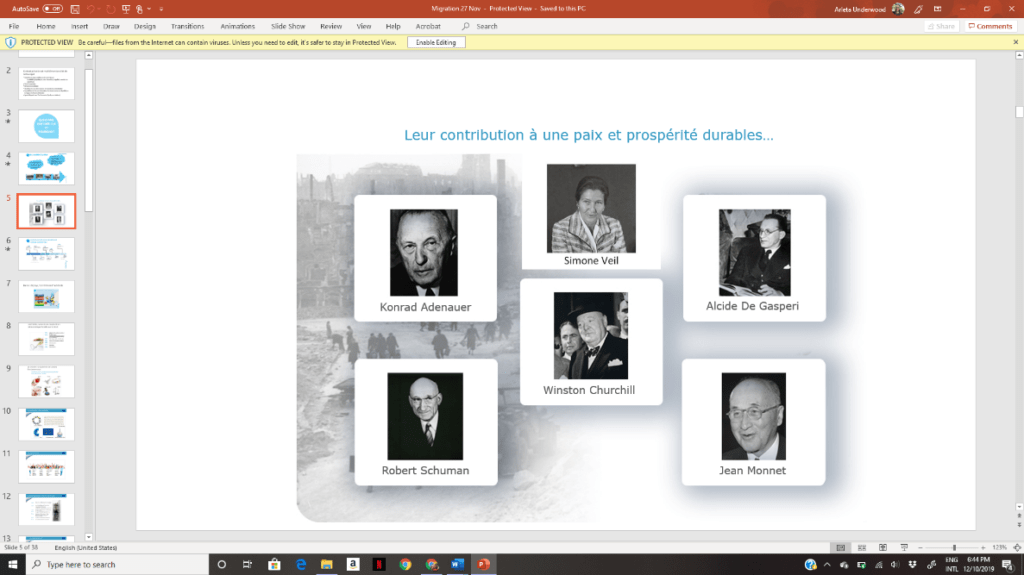
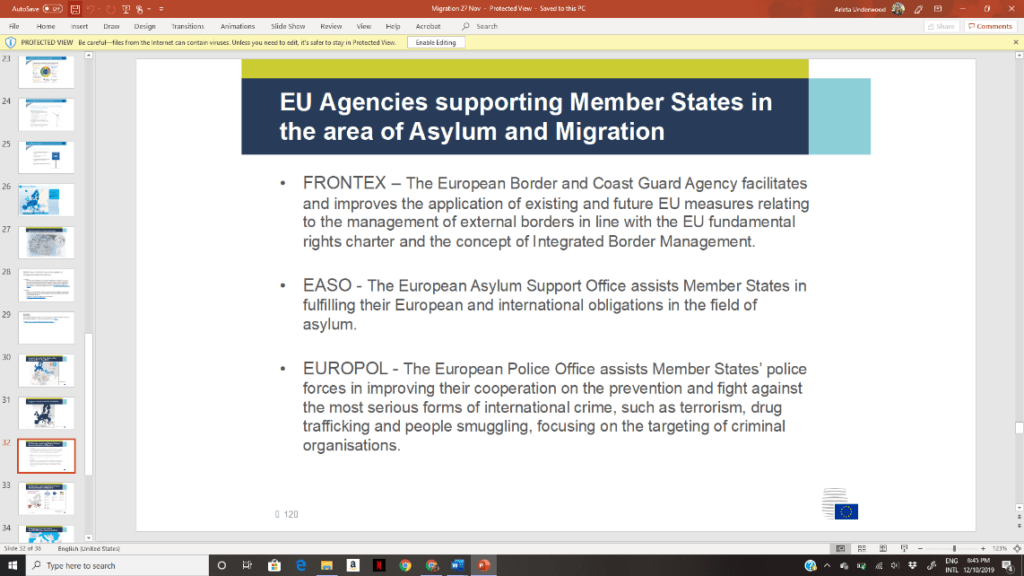
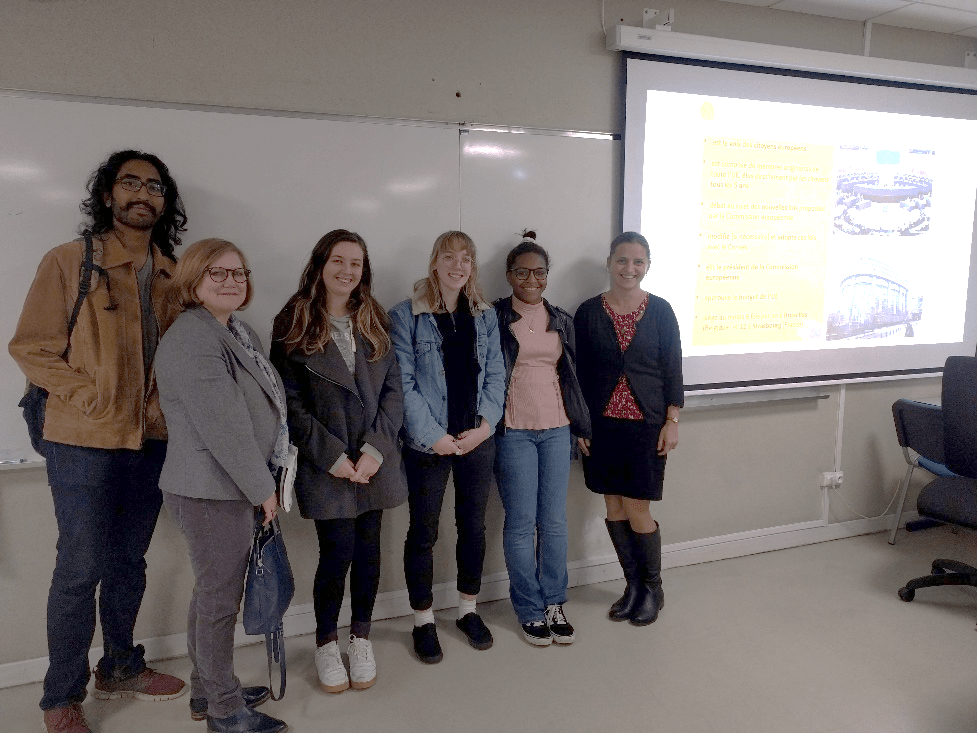
For our last guest speaker, we met with René Darbois, the vice president of sustainable development for the City of Metz. I expected a cut and dry presentation, supplemented by a powerpoint and some Q&A. However, when he arrived, we began a conversation with him about green activities in Metz (and even globally), potential improvements that we saw for their green developments, implications of climate change on the world, and even discussed the films that we saw at CinéMaTerre. We didn’t get around to discussing, in depth, any new projects or ideas that they were working towards at the moment, but I believe that it was a good chance for us to offer our reflections and feedback about the sustainable efforts that we’d seen in Metz and in Europe after studying the content with Dr. Kozhanova for the semester. We were able to watch the video that Morgan Gallimore and I directed, giving a brief description of the SLS program at GTL. He couldn’t understand a majority of what was being said because the video was in English, but he enjoyed it nonetheless, even asking for a copy of it on his personal USB. He was inspired by our dedication to the content and excitement in learning about sustainable development as much as we were appreciative of the things that he’s worked towards establishing in Metz.
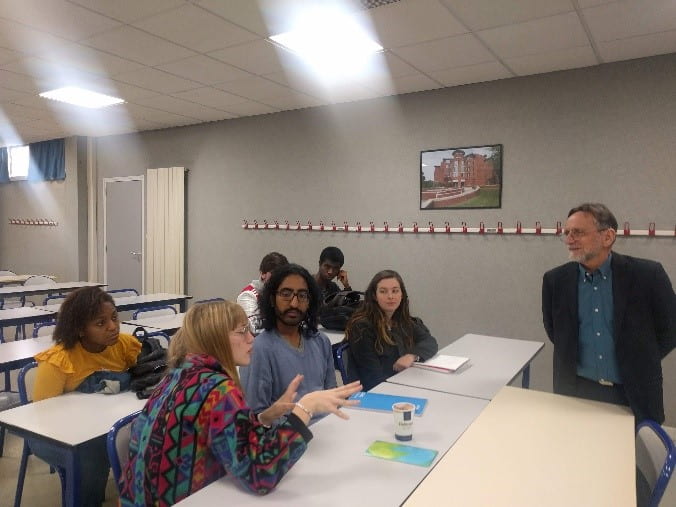
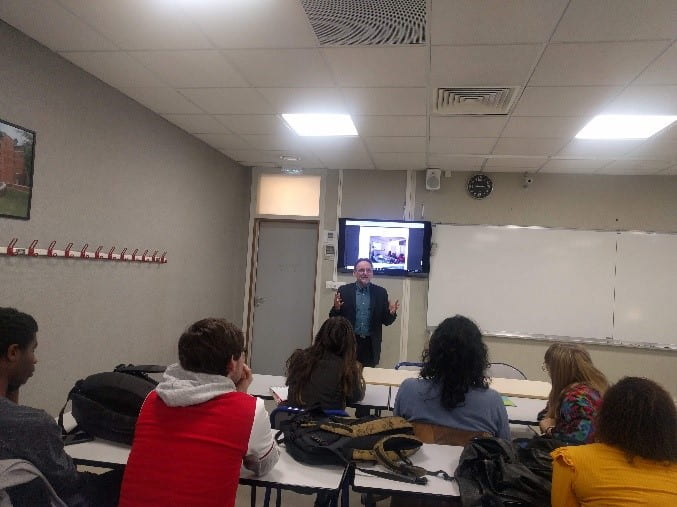
At the beginning of one of our last weeks, some members of the SLS crew (the ones that didn’t have finals) made their way to JJ’s humble abode in Metz for a yummy, traditional French feast. When we arrived, JJ and his wife were there to greet us, food still cooking on the stove. Nachi, Morgan, and I helped by slicing bread and chopping parsley and onions. We laughed over music, French and American, cracked jokes at each other, and were able to share and discuss details of French life. Once the meal was prepared, we settled down to eat some boeuf bourguignon with mashed potatoes and mushrooms. It was absolutely delicious, and despite the fact that I felt bad for eating so much of it, went in for multiple helpings. The beef and vegetables were well-seasoned and tender, and the broth was a perfect gravy, so to speak, for the mashed potatoes. Soaking up the last little bit with baguette was the cherry on top, though. Afterwards, we had some cheese and more bread, just food to feed our thoughts while we talked over the dinner table, wrapping up the meal with some spice bread Cantillon that I brought from the Christmas markets in Metz. The dinner was a huge success, and I’m so happy to have been able to spend such a warm, happy night with Dr. Kozhanova and JJ before the semester ended. I’m definitely going to miss them!
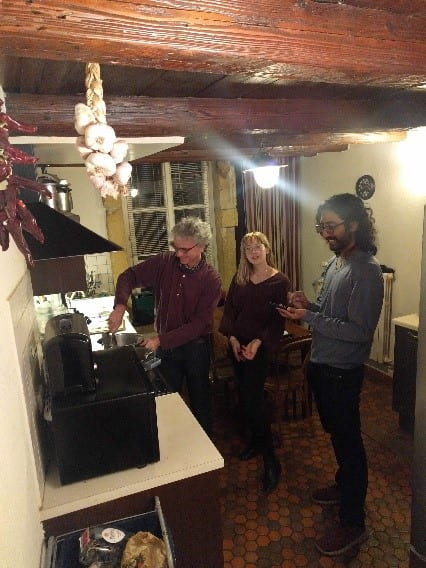
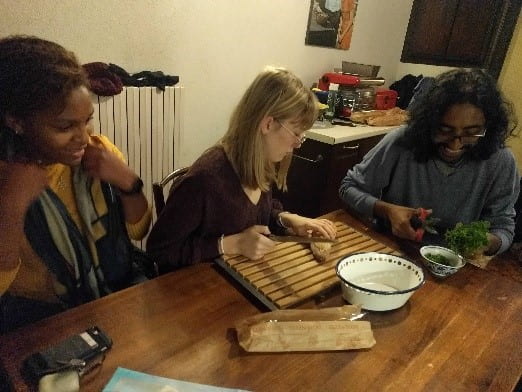
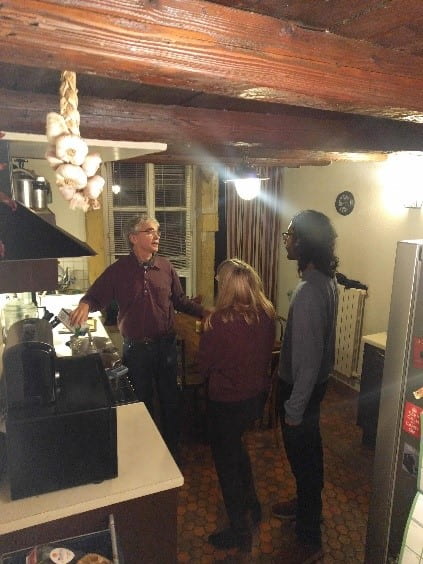
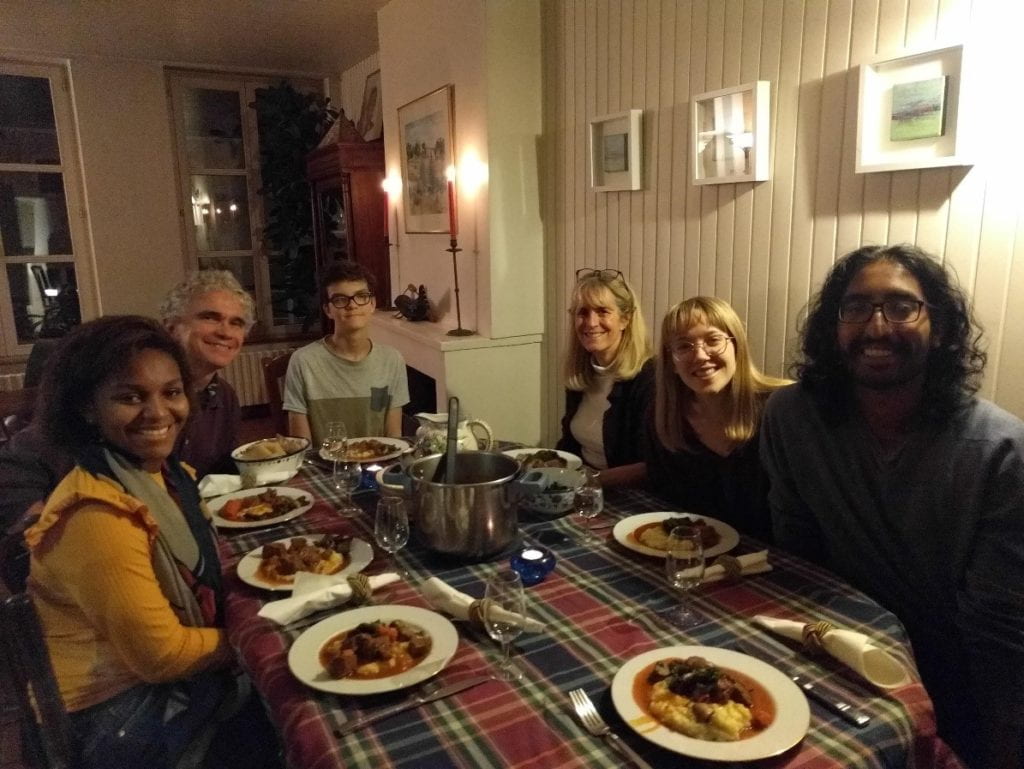
It’s been an honor to write for you this semester about the SLS program and about my experiences being a part of it. This program made my semester, absolutely. I learned so much with Dr. Kozhonova in class about the reality of issues in the environment, in the economy, and in society, all three facets of the greater goal: sustainability. Seeing how France was combating these issues was intriguing and has given me a lot of ideas for how I’d like to make my life and potentially others’ lives (at Georgia Tech in Atlanta) more sustainable. I was able to learn even more about the people and culture of France while out on our visits, not to mention the huge boost to my French speaking skills as a result, as well. These classes were my favorite of the semester, hands down, and that could be attributed to my pre-existing passion for the environment and discovering new ways that I could help. However, I believe that they had a genuine, positive impact on my understanding of the global issues that we’re facing in trying to live right by the planet. Shameless plug, what can I say. Visit Europe if you haven’t already, and stop by Metz if you get the chance. I wish you all well, and that your future may be a little more sustainable. Au revoir!